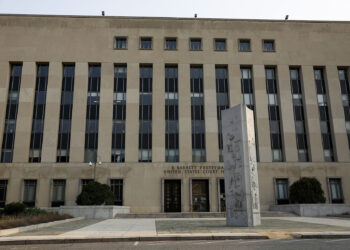Raed Jarrar is the Advocacy Director of DAWN.
عربي
The Senate voted this week on S.J.Res.31, a joint resolution of disapproval that would have blocked the sale of $650 million worth of air-to-air missiles from the United States to Saudi Arabia. It was backed by an unlikely mix of Republicans and Democrats in a starkly divided Senate, including arch-conservatives Rand Paul and Mike Lee, and progressives Bernie Sanders, Elizabeth Warren and Patty Murray.
But the resolution failed, 30-67, mostly because of the myth that the weapons included in the deal are only "defensive" in nature—280 Raytheon-built Advanced Medium Range Air-to-Air Missiles, known as AMRAAMs, that Saudi Arabia says its fighter jets need against Houthi drones from Yemen.
Earlier this year, President Joe Biden announced that he would no longer sell "offensive weapons" to the Saudi government that would assist in their ongoing military campaign in Yemen, which left many wondering what exactly the difference is between a "defensive" and "offensive" weapon. In a statement slamming the efforts in the Senate to block the Saudi arms sale, the Biden administration argued that doing so would "undermine the President's commitment to aid in our partner's defenses at a time of increased missile and drone attacks against civilians in Saudi Arabia."
But weapons are weapons. This new false dichotomy of "defensive" versus "offensive" weapons is nothing more than a political ploy to justify selling more arms to abusive governments like Saudi Arabia's. This arms sale represents a further backtrack on Biden's campaign vow that, as president, he would make the Saudi government "pay the price" for its killing of journalist Jamal Khashoggi—including by making it "very clear we were not going to in fact sell more weapons to them," especially to resupply the Saudi-led war in Yemen that has killed thousands of civilians and created the world's worst humanitarian crisis.
The Biden administration has fallen back on the fallacy of "defensive" weapons. Is there really such a thing, though? Not according to existing U.S. law.
- Raed Jarrar
Now, the Biden administration has fallen back on the fallacy of "defensive" weapons. Is there really such a thing, though? Not according to existing U.S. law.
U.S. law prohibits selling weapons, of any kind, to abusive governments. The Arms Export Control Act and the Foreign Assistance Act both established guidelines years ago that govern arms transfers to foreign governments. According to a policy analysis by the Congressional Research Service earlier this year, "the acts authorize the termination of future sales and deliveries if a recipient is found to be in substantial violation of a sale-related agreement with the United States or to be otherwise using such defense articles for unauthorized purposes." The Foreign Assistance Act, as well as executive branch policy, it added, "restrict certain sales of defense articles to foreign recipients found to have committed human rights violations." That would certainly include Saudi Arabia.
Section 502B of the Foreign Assistance Act states clearly that a "principal goal" of U.S. foreign policy "shall be to promote the increased observance of internationally recognized human rights by all countries," and that "no security assistance may be provided to any country the government of which engages in a consistent pattern of gross violations of internationally recognized human rights."
When it comes to supporting its so-called "allies" in the Middle East and North Africa, the U.S. government has historically ignored and circumvented clear U.S. law that prohibits transferring weapons to abusive governments.
- Raed Jarrar
"Security assistance" is defined by Section 502B to include "sales of defense articles or services, extensions of credits (including participations in credits), and guarantees of loans." This section of the law also defines security assistance to include military assistance, economic support, military education and training, peacekeeping operations, or antiterrorism assistance and "any license in effect with respect to the export to or for the armed forces, police, intelligence, or other internal security forces of a foreign country." Those are not vague definitions and terms, and they say nothing about a supposed distinction between "offensive" and "defensive" weapons.
"Gross violations of internationally recognized human rights" are not vaguely defined under the Foreign Assistance Act, either. According to Section 502B, in determining whether a government has engaged in such violations, the secretary of state is tasked with preparing a report to Congress—the annual Country Reports on Human Rights Practices, also known as the State Department's Human Rights Reports—with information on prospective foreign recipients of U.S. security assistance. Specified topics for the report include information on war crimes, crimes against humanity, genocide, extrajudicial killings, freedom of the press and other serious violations.
When it comes to supporting its so-called "allies" in the Middle East and North Africa, the U.S. government has historically ignored and circumvented clear U.S. law that prohibits transferring weapons to abusive governments. Israel and Egypt continue to receive billions of dollars in U.S. military aid every year despite hundreds of documented cases of gross violations of human rights. Saudi Arabia, the United Arab Emirates and other Gulf states continue to seal U.S. arms deals worth tens of billions of dollars every year as well, regardless of their own long records of human rights abuses.
Rather than putting human rights "back at the center of our foreign policy," as Biden has declared in speeches since taking office, echoing his campaign promises, the Biden administration is repeating the exact same mistakes made by previous administrations. This administration did not even issue a "security waiver" or any other typical excuse to justify ignoring the law when it comes to the flow of arms to an abusive American ally.
The mere fact that Washington is humoring this invented paradigm of defensive versus offensive weapons is a win for abusive governments like Saudi Arabia's, which the United States shouldn't be selling any weapons to, period. Although the Senate failed to block this deal, members of Congress should reject this new false paradigm and block any upcoming weapon sales to any abusive governments.





































